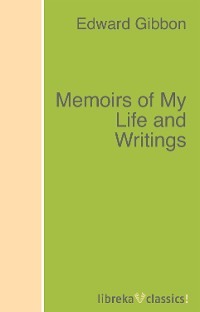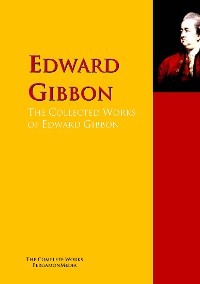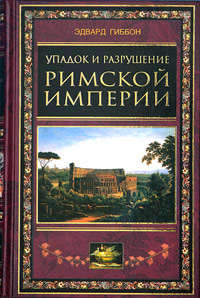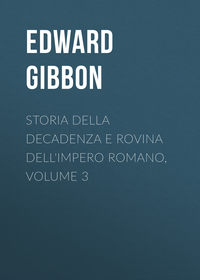 полная версия
полная версияPrivate Letters of Edward Gibbon (1753-1794) Volume 1 (of 2)
36.
To his Father
Genoa, June the 4th, 1764.Dear Sir,
I dare say you will be surprised when you see the date of my letter, as according to my last from Turin, you must have imagined me at Venice. It was indeed our intention till we got as far as Milan, and saw the shoals of English that were pouring in from every side, and till we heard the same accounts from everybody of the crowds and dearness at Venice upon this occasion. Garrets hired as a great favor at four sequins a night, every thing else in proportion, and with regard to us, who could not have got there above two days before Ascension day, the greatest danger of lying in the street. A fortnight passed at Venice at this time would have occasioned a very considerable augmentation in my expences, greater I am afraid than would have suited you, and which I should have brought upon you merely for the sake of a ceremony, as I can take Venice in as convenient, and a much cheaper manner in coming home. I was happy enough to find Mr. Guise entirely of my opinion, & we both agreed to strike off to Genoa & from thence by the way of Leghorn into Tuscany. I can easily conceive how extravagant Venice would have been upon such an occasion, from what I have already experienced of the dearness of travelling in Italy. Upon the road the necessary expences of the posts, &c., are higher than in England, and with regard to the inns, the instant they discover you are an Englishman, they do not know what to ask. We are constantly obliged to reduce their demands to one half, and even then to pay them too much. At Pavie I remember they asked us about twelve shillings for our lodging two nights in a single room. We gave them about eight, which they took after about half an hour's wrangling.
This, Dear Sir, is the disagreable side of travelling. In every other respect my tour exceeds my most sanguine expectations, altho' I am not yet got to the most interesting part of Italy. Turin, Milan, and Genoa have afforded me very great entertainement, and very different scenes. You cannot expect, Dear Sir, an account of any one of them. The whole it would be impossible to give you, and I should hardly know what particulars to select. We had better reserve them till we meet at Beriton, where the history of my peregrinations may perhaps furnish out the amusement of some evening when there is no post. Indeed if negligence and conciseness can be ever excused in a Correspondent they ought to be in a traveller. The common excuse of having no time is almost verified. Your morning is taken up with running about to see places, your evenings are commonly engaged in company, and you are forced to employ the very few moments you have at home in setting down some account of the things you have seen.
But amongst all my avocations I cannot help mentioning Mr. & Mrs. Celesia, who have received us not only in the most polite but really in the most friendly manner. We have dined and supped several times with them; once at their Country house which is still wilder than Beriton, and they have introduced us to the Doge and to several houses in the town. This afternoon we are going with them upon a party in the country. Mrs. Celesia seems to retain the warmest friendship for Mrs. Gibbon; she is very sorry their correspondence has been dropt, and has some thoughts of renewing it herself. I likewise saw the other day Captain John Elliot,[76] who came in with his Frigate and sailed again in about a couple of hours for Minorca. He has been a great while beating about the Mediterranean.
Mr. Guise and I travel in great harmony and good humour. He is indeed a very worthy sensible man, and I hope I have formed a friendship that will last as long as my life. He is very far from being ignorant & will be more so every day, as he has a very proper spirit of curiosity and enquiry. My inferior companion (my servant) is a very useful one in this country, and in general a very good one. I never enjoyed a better state of health, and hope I shall stand the heats of Florence pretty well. I fancy I shall be obliged to draw again soon after my arrival there, which will be in about ten days. I hope I need say nothing of my sentiments which are always the same for Mrs. Gibbon. I hope to write to her from Florence. My sincere compliments wait upon the brothers.
I am, Dear Sir,Most affectionately yours,E. Gibbon.37.
To his Stepmother
Florence, June 20th, 1764.Dear Madam,
FLORENCE.
Without any of those common apologies for not writing which are generally made use of to fill up the first half page of a letter, I shall tell you at once that I am got here safe and in perfect health, tho' somewhat later than I intended. We proposed going by sea from Genoa to Leghorn. We had taken a Felucca, and were to have embarked the 7th, but a strong south-west wind springing up the day before, made it impossible for any vessel to stir out of the harbour, and kept us waiting six days a most disagreable state of anxiety and attendance. At last, seeing no likelyhood of any alteration in the wind, we were forced to set out by land, and to come round thro' Parma, Modena and Bologna. As we stopt to see what was worthy our notice upon the road, (excepting only Bologna, which will require a fortnight or three weeks) we got here only last night, and are settled in an excellent good hôtel garni kept by one Charles, an Englishman, whom the Duke of Richmond is very well acquainted with as well as with our footman Valentin (for we only take one between us), to whom he has given an exceeding good character in writing.
Every step I take in Italy, I am more and more sensible of the obligation I have to my father in allowing me to undertake the tour. Indeed, Dear Madam, this tour is one of the very few things that exceed the most sanguine and flattering hopes. I do not pretend to say that there are no disagreable things in it: bad roads, and indifferent inns, taking very often a good deal of trouble to see things which do not deserve it, and especially the continual converse one is obliged to have with the vilest part of mankind – innkeepers, post-masters and custom house officers, who impose upon you without any possibility of preventing it, – all these are far from being pleasing. But how amply is a traveller repaid for those little mortifications by the pleasure and knowledge he finds in almost every place. The actual beauties are always the very great singularity of the country, the different pieces of antiquity either dispersed or collected into cabinets, and the variety of master-pieces of sculpture and painting have already made me pass some of the most entertaining days I have yet known, and I have before me the pleasing reflexion that what I have yet seen is far inferior to what I shall find in this place as well as Rome and Naples. I flatter myself, that the works of the greatest artists, which I have continually before my eyes, have already begun to form my taste for the fine arts. I shall however endeavour not to become a Coxcomb, nor to take the knowledge of a few terms for real science. I shall perhaps bring back to England an unafected taste for those arts, I am afraid without the judgment of a connoisseur, and I hope without the ridiculous part of that character.
I have never lost sight of the undertaking I laid the foundations of at Lausanne, and I do not despair of being able one day to produce something by way of a Description of ancient Italy, which may be of some use to the publick, and of some credit to myself. At least I know that I have already collected a considerable stock of materials which is daily encreasing, and that from reading and travel I have made a number of observations which will enter, very properly enter, into such a work, and which will have at least the merit of novelty. You will excuse me, Dear Madam, from entering into particulars as to any part of what I have seen; the task would be endless, and I must employ in giving you a very imperfect account a time of which I want almost every instant. But as my memory is pretty good, and as I keep a very exact journal; the recollection of this part of my life may be no disagreable employment of some winter evenings at Beriton. I am going to take an Italian master, and shall endeavour to get as much out of him as I can during my stay here, which Mr. Guise and I seemed to have fixed at about two months.
We have several English here. Lord Exeter, whom we shall hardly see, as he sets out after dinner; Mr. Ponsonby,[77] son to the Irish speaker, a very agreable young man whom we knew at Turin; Mr. Littleton, son to Lord Littleton,[78] &c. Some more whom I have not yet seen. We make our first visit after dinner to Sir Horatio Mann,[79] who happens to be a distant relation of Mr. Guise. Indeed without that advantage his general behavior to the English assures of the politest reception and an introduction into the best company in town. From the universal character of Florence I expect to meet with a very agreable society. I hope we shall avoid the fate of Lord Fordwich[80] (whom I forgot to mention). The charms of a superannuated beauty have captivated him to such a degree as to make him totally forget his country, and to fix him at Florence these five or six years without the least prospect of his ever leaving it. The Duke of York is expected here to-night from Venice in his way to Leghorn, from whence he goes by sea to Marseilles and so to Paris. It is said he will finish his travels by a visit to his sister at Brunswick.[81] I suppose we must be all presented to him.
I was much disapointed to find no letters from England, and especially from my father; as I had wrote to the banker at Venice to send all that might come to Florence. I hope none on either side have miscarried. I wrote upon leaving Lausanne, as well as from Turin and Genoa. I shall be obliged to draw immediately for a hundred pounds; and as far as I can foresee my expences I hope I shall keep within my bounds. I am very sensible of the times I may have launched out a little too much, but I can safely say, that were I to perform the journey I have already I could not do it for a Guinea less. I have made some progress in the arts of æconomy and exactness, but those of the Italians are necessarily superior to mine. Will it be necessary, Dear Madam, to repeat any assurances of those sentimens which duty and inclination have an equal share in?
I am, Dear Madam,Most truly yours,E. Gibbon.I shall not forget the wax candles. I shall send with them a small quantity of Florence wine.
38.
To his Father
Rome, October the 9th, 1764.Dear Sir,
ROME.
We set out from Florence last Saturday sevenight and are arrived here after a journey of about ten days. We came round by Lucca, Pisa, Leghorn and Sienna, and I think made a very agreable tour of it. I must acknowledge that I had the least pleasure in what my companion enjoyed I believe the most; the Opera of Lucca. That little republick, who could give usefull lessons of gouvernment to many states much more considerable, lays out a very large sum of money every autumn in entertaining an exceeding good Opera at the time that public entertainements are very dead in the other towns of Italy, and receives their money again with very good interest from the great affluence of strangers who resort to Lucca upon that occasion. Of the different tastes which a man may form or indulge in in Italy that of musick has hitherto been lost upon me, and I have always had the honesty never to pretend to any taste which I was in reality devoid of.
We past four days at Leghorn where I saw the Actons. They were so civil to me that I was much embarassed how to behave. The poor old Commodore is in a most melancholy situation. Last winter he had a most violent attack of the Apoplexy; whilst in that situation he was persuaded either from motives of interest or devotion to change his religion in which he had been till then very steady. The immediate consequence of which imprudent step was the total neglect of all his English friends, who from being very intimate with him have taken the unanimous resolution of not holding the smallest connection with him. I most sincerely pity him. At his time of life, to lose the only friends he had, (for he has never been able even to learn the language of the country) to be continually regretting England which he will never see again, and to find himself oppressed with every misfortune of age and infirmity, is a situation truly melancholy. He talked to me a great deal of you and of times which I had scarce any remembrance of, and I think from his manner and conversation that I never saw a more lively picture of an unhappy man. I thought it right to acquaint the English at Leghorn of my reasons for not neglecting him as they did, and they all seemed to approve of my behavior.
I am now, Dear Sir, at Rome. If it was difficult before to give you or Mrs. Gibbon any account of what I saw, it is impossible here. I have already found such a fund of entertainement for a mind somewhat prepared for it by an acquaintance with the Romans, that I am really almost in a dream. Whatever ideas books may have given us of the greatness of that people, their accounts of the most flourishing state of Rome fall infinitely short of the picture of its ruins. I am convinced there never never existed such a nation, and I hope for the happiness of mankind there never will again. I was this morning upon the top of Trajan's pillar. I shall not attempt a description of it. Only figure to yourself a column 140 feet high of the purest white marble, composed only of about 30 blocks and wrought into bas-reliefs with as much taste and delicacy as any chimney piece at Up-park.[82]
The sickness of Naples seems pretty well over. I shall not however yet venture to it. The concern you and Mrs. Gibbon express in her last letter, makes it my duty to avoid the appearance as well as the reality of danger. If I allow about three months to Rome, a month to Naples, and a fortnight or three weeks to the road, &c., visiting again some of the most curious things upon my return, I shall have but few idle moments, and yet shall hardly be able to take my last leave of Rome before the end of February. About six weeks may do for Bologna, Verona, &c., and Venice, and towards the middle or end of April I hope to have finished a tour attended with the greatest pleasure, and I flatter myself with some improvement. I shall then be ready, Dear Sir, to obey your orders with regard to the time and manner of my returning to England. The grand tour of Germany I do not even think of, as I am sensible of the considerable and unavoidable expence it would be attended with. The route thro' Bavaria to the Rhine and Low Countries, or that of the south of France to the same parts, would have their several advantages and might each employ about two months. However from the great extent of country I must pass thro' so rapidly, they would not be without an addition of expence. Believe me, Dear Sir, that is a consideration I feel so often and so sensibly; that rather than any thing should disturb the pleasure of our meeting, I will come down from Venice to Leghorn and embark for England. Satisfied with the enjoyment of Italy and France, I will rather reflect upon what I shall have seen than upon what I shall have lost. I wait, Dear Sir, for your directions. I have asked for them rather soon, both to unburthen my mind, and because we are neither of us the most exact Correspondents. I have a hundred more things to say. I would thank Mrs. Gibbon for the agreable news she sent me in her last letter of your having entirely got over your late indisposition, but my paper is out and I can only add that I am and ever shall be,
Dear Sir,Most sincerely yours,E. Gibbon, Junior. May I add Major?39.
To his Father
Rome, November the 10th, 1764.Dear Sir,
MONEY TROUBLES.
I received last Wednesday your letter of the 16th of October, and could scarcely have thought that any one from you could give me so much uneasiness as this has done. I have let slip one post in order to consider it with more attention, and I believe I must visit again every thing I have seen, or seemed to see, in the intermediate days. I must own, Dear Sir, that I am frightened both when I look back, and when I look forwards. A mortgage of £10,000 contracted about six years ago, £1200 taken out of Hervey's hands; and now an urgent necessity of selling one of our very best estates! Where must this end? Believe me, Dear Sir, I am very far from meaning the smallest reproach. I am convinced that all these measures have been dictated by necessity, and that this necessity has been occasioned by the intricacy of affairs, the iniquity of men, and a variety of accidents over which prudence has no power. But this very conviction encreases my uneasiness. What may be one day my fate without half your knowledge of business, and deprived of all those ressources which you must have found in living so many years in the Country, and in managing and improving your estate? With less æconomy and perhaps more wants, I may very easily find my way to a Gaol.
Notwithstanding all this, Dear Sir, I am very sensible of the unhappy difficulties of Otway's affair, and both duty and inclination would engage me to submit to every thing in order to extricate you from it. But for a sum which is not very considerable, will it be necessary to sell an Estate which I have heard you often speak of as the clearest and most valuable you are in possession of? If it is absolutely necessary to sell something, would it not be better to endeavour to part with Putney? I speak, Dear Sir, very much at random for want of knowing the respective values of the Estates, and what you are offered for Lenborough.[83] Indeed without some such knowledge I can scarcely say anything positive upon the subject; more than that, if you still persist in that scheme, it would be very difficult for me to dispute any thing that you think expedient, or conducive to your own ease and happiness.
But in that case, Dear Sir, should you think the following conditions unreasonable? – 1st. That upon the sale of the estate, after discharging the mortgage and deducting £1200 for Otway's affair, the residue of the money should be paid into a banker's hands and be lodged in the funds in our joint names. The interests should be solely yours, and we should have what we have so often desired, a sum of money ready for any emergency, and sufficient to execute any plan, either of bringing me into Parliament, or any thing else. Surely, Dear Sir, this scheme is preferable to purchasing more land. Have not we enough already? The only thing that hurts me in this proposal is the air of distrust it seems to carry with it. Believe me, Dear Sir, when I say that I can as little doubt of your care and regard for me as of my own, and that if I take any precautions, they are such only, as I should think it equally prudent to take against myself. My other condition would be the same which I mentioned last year, that of changing my annuity into a rent charge upon the estate, and permitting me to convert that into another annuity which I apprehend would be at least double what I at present enjoy. I have often considered it coolly since that time, and a scheme which would make me easy and happy for life, appears to me much more eligible than any other which would make a small addition to my income at your expence. Marriage, and the consideration of posterity would be the only motives which could ever make me repent of such a step, and against these my circumstances, my constitution and a way of thinking grounded upon reasoning and strengthened by experience and habit, will I hope effectually secure me. My views will never extend beyond the happiness of your life, that of Mrs. Gibbon's and of my own. Let us mutually consult what may the most contribute towards that object without calculating what estate may at last remain for the Elliots.[84]
I hope you will excuse, Dear Sir, the warmth [with] which I have expressed myself on a subject so highly interesting to us both. I am sure I have not wrote a line that has not been dictated by those sentiments of respect, duty and gratitude upon which you have so many claims, and which will always engage to place your ease and happiness upon a level with my own. I shall wait your order as to the time and manner of my coming home; but I hope you will not insist upon it's being before the month of June.
I am, Dear Sir,Most sincerely and most affectionately yours, E. G.40.
To his Father
Rome, December the 5th, 1764.Dear Sir,
HIS CREDIT WITHDRAWN.
This moment to my great surprize, Barazzi, the banker of Rome, sent for me to shew me a letter he had just received from the banker at Lausanne, who had given me my general credit all over Italy, to recall that credit and to desire he would give me no more money. This can be only owing to the last draught from Florence having been protested, and as the banker has probably sent the same advice to his other correspondents, my character is ruined in every great town in Italy, and what makes it more unfortunate is the draught I gave from hence about a week ago for £100 more at twenty days' sight; which will probably have the same fate. I feel my situation the more as I am not conscious of having deserved it by distressing you with extravagant draughts. After a mature deliberation you fixed upon 700 pounds for my tour of Italy. I have always advised you regularly before I drew, and I have never, Dear Sir, exceeded my proportion of the sum. To what then am I to attribute this unforeseen misfortune? In your last letter you say nothing, and yet you must have then received mine from Florence. Forgive my warmth, Dear Sir, I scarce know what to think, write, or do.
I shall wait with the utmost impatience for an answer. Indeed I shall be very uneasy till it comes. Barazzi, who was very civil upon the occasion, desires if you send me credit upon any other banker (which will be absolutely necessary) that you would apply to Andrew Drummond whom he corresponds with. Till then it will be impossible for me to stir from Rome, or to live with much pleasure in it, while I know there are people who may very naturally suspect me of being a rogue or an adventurer. Once more, Dear Sir, forgive a man who scarce knows what he writes, and believe me ever
Most sincerely yours,E. G.I beg, Dear Sir, a speedy answer.
41.
To his Father
Rome, the 5th of December, 1764.Dear Sir,
Since I sent my letter, which is already sealed up in Barazzi's packet, I have considered that the new credit which it will be necessary to send me must be given by the London Banker upon the other towns I am to go to, as well as upon Rome; at least upon Naples, Bologna, Venice, and one or two principal places in France or Germany according as you intend I should come home. After so unfortunate an accident I can scarce hope Barazzi himself will give me any credit elsewhere; and I must be the more exact, as in several of those places I shall find the bankers prepossessed against me by the letter of the Lausanne banker which must have been circular. How can it have happened, Dear Sir, that a letter can have had the time to go from London to Florence, from Florence to Lausanne, and from Lausanne to Rome without my having had the smallest intimation of it from you?
I am, Dear Sir, once moreMost truly yours,E. G.42.
To his Stepmother
Naples, January the 29th, 1765.Dear Madam,
NAPLES.
I am very sorry for the reason (it is really no excuse) which I have had for my late dilatoriness in writing. I have waited with great impatience for an answer to the letters I had wrote my father, have always hoped and imagined that I could scarce fail of receiving it the very next post, and living in that daily expectation have suffered several posts to elapse without writing myself. Indeed I begin to fear that some letters must have miscarried. I hope however to hear from my father very soon, since if I should return to Rome without having had any orders from him as to the time and manner of my returning home, I should find myself very much embarassed how to act.
We arrived here only last night, so that as yet I have seen nothing; not even the glorious prospect of the bay of Naples. A thick foggy cloudy day (for such weather have we sometimes even in this happy climate) hangs over it, and veils all its beauties. The journey from Rome has satisfied at least one species of a disagreable curiosity, that of being acquainted with the very worst roads in the universe. You are sometimes sunk in sloughs and sometimes racked and battered on the broken remains of the old Appian way, and when after a tedious day you at last arrive at the long desired inn, you soon wish for the moment of setting out again. Governor Ellis[85] who is here, a man famous for attempting the North West passage, and consequently acquainted with every species of hardship, declares that he had rather circumnavigate the Globe, than go from Rome to Naples. This single circumstance may convince you, Dear Madam, how just are the common but melancholy observations, of the wretched state of this fine country and of the misery of its idle and oppressed inhabitants. They are indeed painted in too lively colours to escape the notice of the most inatentive traveller, and so shocking as to excite the pity of the least feeling one. I will not repeat here, Dear Madam, my old and lazy maxim of saying little because I have a great deal to say, and of reserving every thing for your dressing Room. I assure you without flattery, that I am very impatient to see it. I cannot say whether you will find me improved in any thing else, but at least I think I am become a better Englishman, and that, without adopting the honest prejudices of a Hampshire farmer, I am reconciled to my own country, that I see many of its advantages better than I did, and that a more enlarged view has corrected many errors of my premature and partial observation.









